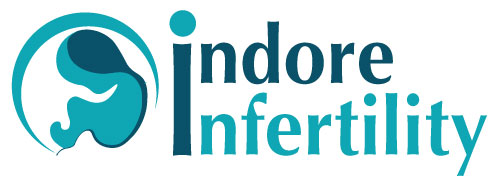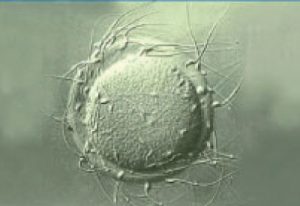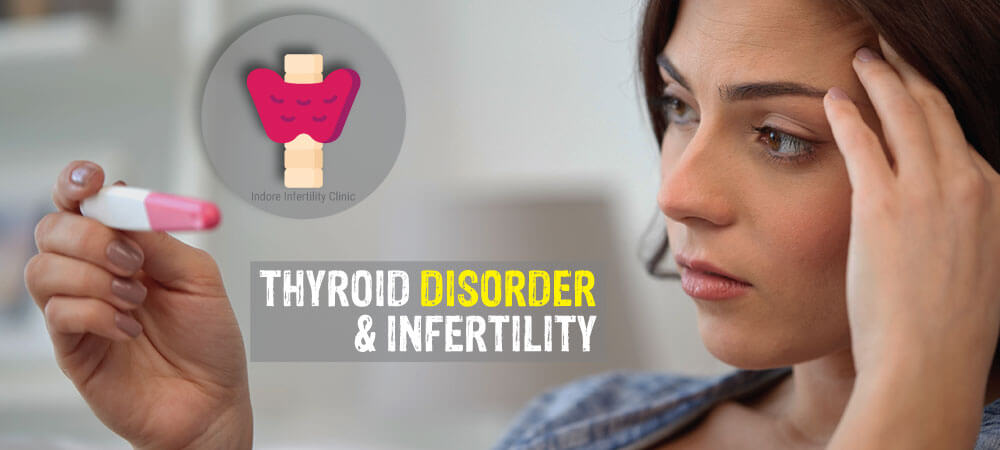
Thyroid Function and Infertility
The ability to become pregnant and then to continue pregnancy safely resulting in delivery of a healthy baby both are dependent on normal thyroid hormone levels. Abnormal Thyroid levels result in a wide range of reproductive disorders including irregular menstrual periods, infertility and impaired growth of babies during pregnancy.
How does thyroid hormone imbalance cause Infertility?
Thyroid dysfunction can affect fertility in various ways resulting in:
• Anovulatory Cycles – Either ovulation does not occur or at times will result in delayed ovulation.
• Luteal Phase Defect – Insufficient release of hormones which are supportive of pregnancy after release of egg.
• High Prolactin (PRL) levels
Therefore, normal thyroid function is necessary for fertility, pregnancy, and to sustain a healthy pregnancy, even in the earliest days after conception.
There are mainly two types of thyroid disorders
Both these conditions can negatively impact fertility—both the ability to become pregnant and the ability to carry a fetus to term.
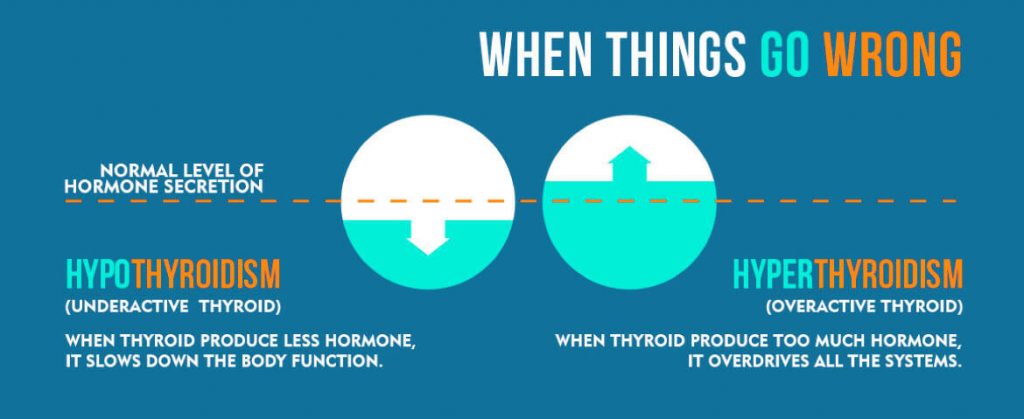
Hypothyroidism
(Underproduction of thyroid hormone leads to high TSH level)
The most common Hypothyroid disorder is the autoimmune condition, called Hashimoto’s thyroiditis, which is more common in women.
Low Thyroid levels in blood leads to increased production of Thyoid releasing hormone (TRH) from brain which stimulates pituitary to secrete TSH (Thyroid secreting hormone) and PRL (Prolactin or milk secreting hormone).
Therefore when hormone test is done in Hypothyroid patients:
- TSH is High
- Thyroid hormones (T3,T4) are low
- Prolactin may be high
Hyperprolactinemia (High Prolactin level) adversely affects fertility potential by disrupting ovarian function.
Hyperthyroidism
(Overproduction of thyroid hormone leads to low TSH level)
Graves’ disease, another autoimmune condition, is the most common cause of hyperthyroidism. In hyperthyroidism, Thryoid hormone levels are high and TSH level is low.
How Common is thyroid disease ?
Thyroid disorders are very common especially among women. As women are more prone to develop thyroid disorder during their lifetime. Prevalence of Hypothyroidism is more as compared to Hyperthyroidism in women in the Reproductive age group. About 24% of infertile women were found to have Hypothyroidism — but within a year of treatment, 76% were able to conceive.
Here are some less known facts about Thyroid Disorder:
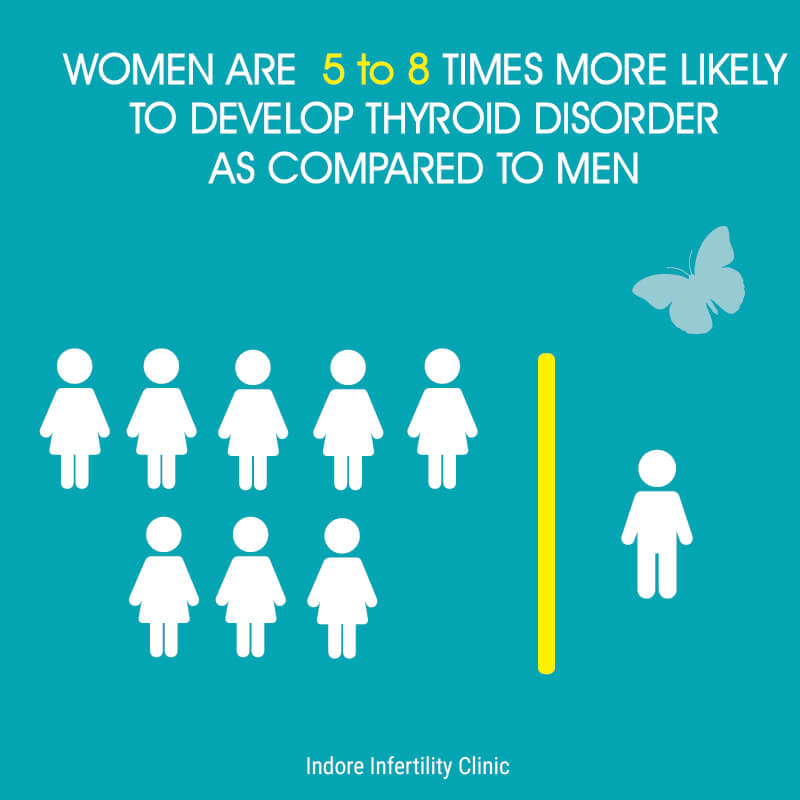
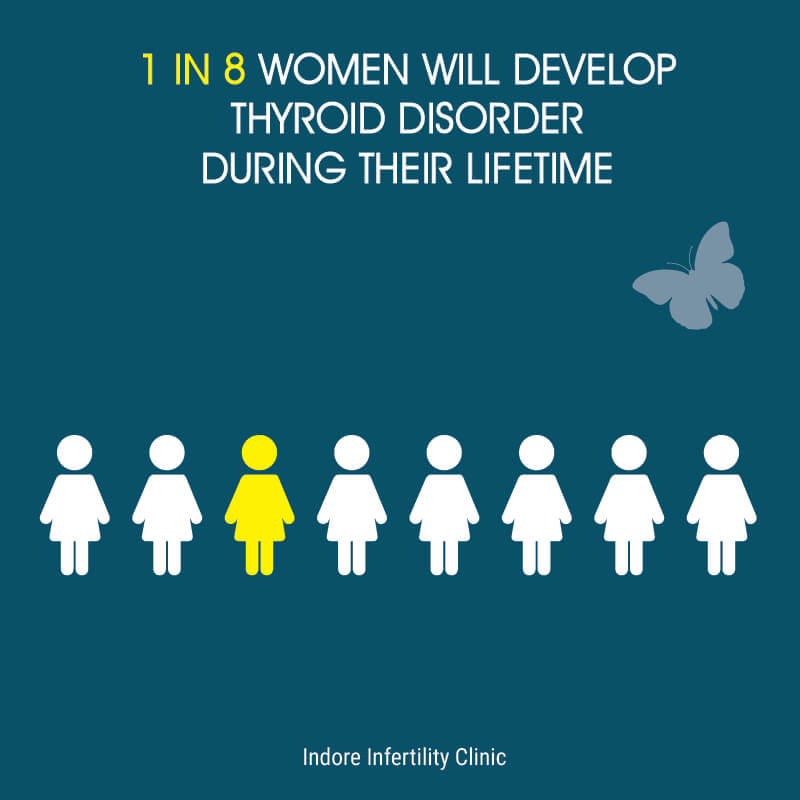
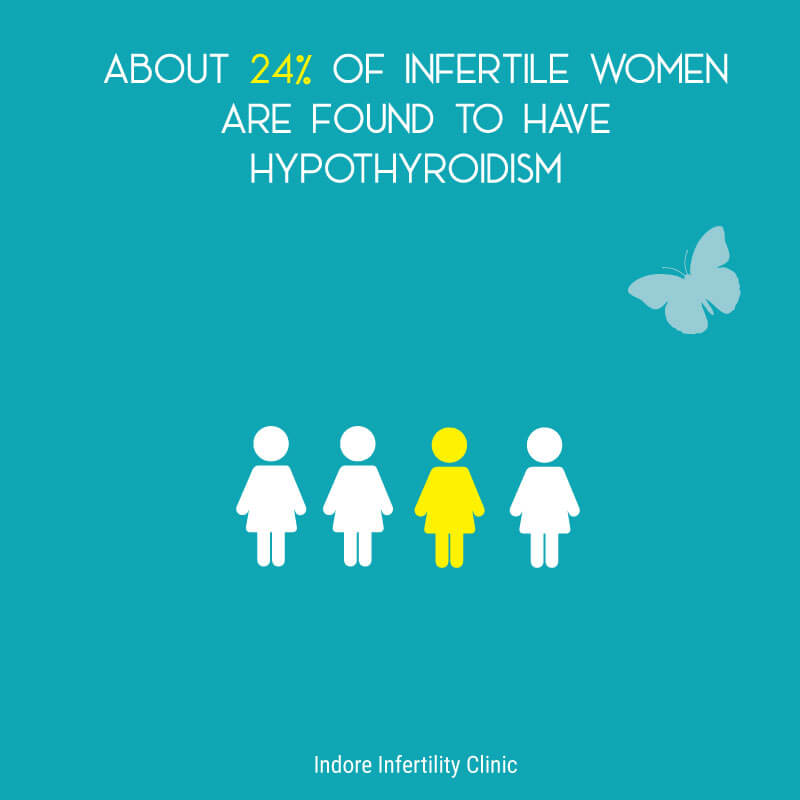
Can Male Infertility be caused by hypothyroidism ?
Fertility is not a female-only concern. Thyroid disorders in men can also affect a couple’s fertility. Abormal thyroid function can damage sperm quality and motility, making it difficult for the sperm to enter the egg for fertilization.
What are the common symptoms of hypothyroidism ?
- Exhaustion
- Muscle pain
- Dryness of skin and hair
- Thinning of hair and hair loss
- Increase in Weight
- Cold Intolerance
- Constipation
- Irregular menstrual cycles
- Difficulty in becoming pregnant
- Early pregnancy loss
- Impaired memory
How can I know if I have thyroid hormone imbalance?
The comprehensive thyroid evaluation should include T3, T4, and thyroid stimulating hormone (TSH). We offer complete hormone profile at Indore Infertility Clinic.
If any abnormality is noted in these reports, you should consult your doctor for further tests and advice.
Other tests that may be carried out are: thyroid autoimmune testing such as thyroid peroxidase (TPO) antibodies, thyroglobin/antithyroglobin antibodies, and thyroid stimulating immunoglobulin (TSI). If there is any abnormality in these reports, you may be advised to consult an Endocrinologist.
Can I conceive naturally with Hypothyroidism?
It is possible to conceive naturally with hypothyroidism. However, those who conceive will be at a higher risk of miscarriage, and those who continue their pregnancy will be at greater risk of having fetal growth restriction. In short, It is not advisable to become pregnant till the thyroid levels become normal. If hypothyroidism is controlled with Thyroid medication, none of these complications occur.
Can imbalance in Thyroid hormone cause miscarriage?
Yes Thyroid imbalance can cause miscarriage in the early stages of pregnancy. This can occur with both Hyper and Hypo Thyroidism.
Is it safe to take thyroid medication during pregnancy ?
It is absolutely safe to take thyroid medicines during pregnancy. No ill effect has been noted on either mother or baby. Infact not taking proper medication is bad for both mother and baby, so one should not be afraid of taking thyroid medicines during pregnancy at all.
